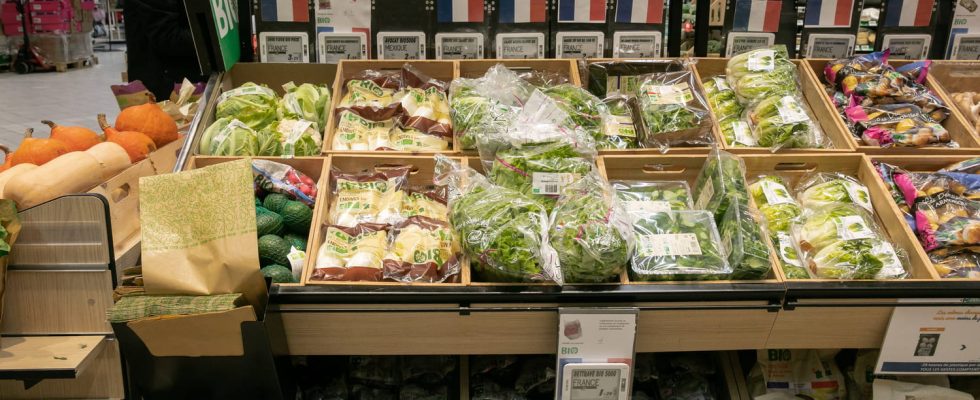The majority of products from this supermarket aisle are contaminated by pesticides. Is it dangerous for health?
Generally speaking, consumers are becoming more and more attentive to the quality and origin of the products in their shopping basket. However, the products that best meet the criteria of transparency and traceability are often organic foods, from sustainable agriculture or fair trade. And they have a higher price. In the fruit and vegetable section in particular, consumers are forced to make unattractive choices by opting for products sometimes coming from the other side of the world.
You should know that pesticides are present in many products, but in particular those from agriculture. A study produced by 60 million consumers reveals that bagged salads contain high levels of pesticides. To conduct this study, the magazine tested 26 packaged salad references. Conclusion: “only five are free from contamination: two lettuces and three lamb’s lettuce. For the rest, we detected an average of 3.8 pesticide residues per contaminated salad… knowing that our analyzes identified 28 different molecules”. As indicated Releasethe 7 out of 10 households who favor this type of ready-to-use salads consume more pesticides than those who buy their salad whole and then have to wash and cut it themselves.
This use of pesticides is partly explained by the nature of the salad. As Libération points out, salad is a fragile vegetable, sensitive to humidity and crop pests. Asked by 60 million consumers, Pierre Meliet, president of the Union of Manufacturers of Fresh Ready-to-Use Plant Products (SVFPE), explained: “However, many products authorized until now have been removed, and producers are doing a lot of work to avoid treatments phytosanitary products” before adding: “But, to date, we do not know how to effectively combat the various lettuce diseases, such as aphid invasions or lettuce mildew.”
According to the magazine, eight of the molecules identified in salads are classified in the list of “carcinogenic, mutagenic or toxic for reproduction” (CMR) by the European Chemicals Agency (ECHA). Nevertheless, 60 million specifies that individually, their rate respects that imposed by the regulations. The risk lies in the mixture of these molecules, the consequences of which for health are still unknown.
In this study, the magazine indicates that in the worst case, “all pesticides combined, the worst performers have up to nine residues in the same salad (Aldi and Top Budget)”. As for organic brands, some also contain pesticides, as is the case for the “Organic Auchan and Monoprix references” but whose health risk is low. As Libération points out, pesticides can occur unintentionally, such as through environmental contamination.
